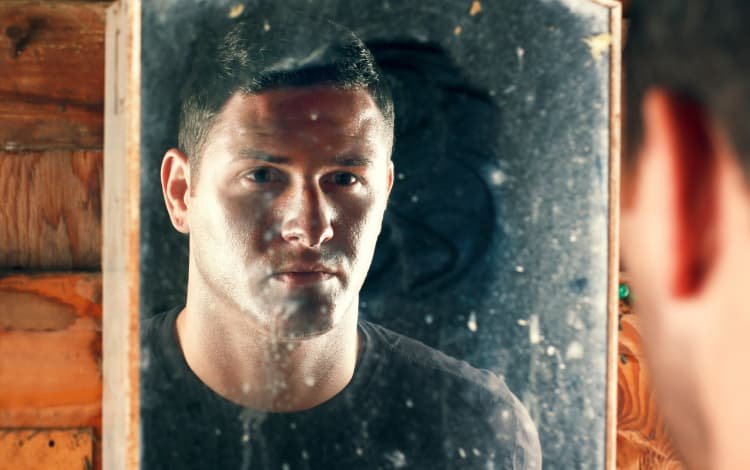Feel Better by Finding Gay Therapy Near You
As a gay man, you might find that you need a therapist who understands your unique experience. A therapist who is gay can provide a safe space for you to explore and work through any challenges you may be facing.
Finding someone who specializes in gay therapy can be challenging. Still, the Internet helps you connect with someone nearby who offers online counseling.
Our feelings (subconscious mind) often drive our need to seek psychological help. But any decision is best made when emotions and logic (the conscious mind) become active. This includes deciding whom to see for counseling. In your search, be it on Google, Bing, or directory listings, take time to do your research instead of rushing.
Consider your comfort level when deciding on your therapist. And ensure you're on the same page with them about what you want to achieve in counseling. If you are honest and open with your therapist, you may find great success in therapy
Why you might need a gay therapist.
Finding gay-friendly therapy nearby is best done when you understand your needs. As example, counseling can help you with issues related to your sexual orientation, such as shame and internalized homonegativity. It can also help with mental health difficulties that have nothing to do with being gay.
A gay therapist can also be a trusted and unbiased source of guidance and support - someone you can talk to about what is going on in your life. This can relate to your sexuality or not.
A gay therapist who self-identifies as gay can also help you feel safe and understood.
The importance of a safe space.
As a gay man, you may have experienced discrimination, violence, or a lack of understanding. This can take a toll on your mental health and sense of self. Gay-friendly therapy provides a safe space to unpack these experiences without feeling judged.
The power of understanding.
Your therapist should understand the unique challenges that come with being gay. Examples include the coming-out process, identity development, and the impact of homophobia. Someone who "gets it" can make all the difference in feeling heard and understood.
I recall my own journey researching gay therapy. I wanted a therapist to help me explore my sexuality and emotional life. And I wanted it in a way that eliminated any sense of judgment.
When I eventually found someone, I could open up because I felt understood.
I believe that personal experience, not just credentials, is the foundation of empathy.
If you relate to my needs, you, too, deserve a similar experience. How to find the right gay therapist for you
Do your research.
Research is crucial to finding the right fit. There are a few ways to do this. One approach is to get recommendations from people you know and trust about qualified homosexual therapists in your region.
One more way is to look online for therapists in your area. Try searching for "gay therapy near me" or "gay-friendly therapist near me." You should find results that are relevant to you and your location.
Once you've compiled a list of potential therapists, start narrowing down your choices. Consider other factors such as their qualifications, experience, and approach to therapy. These should be on their website, or you can ask them via email or on a call.
Consider your comfort level.
Having a good rapport with your counselor is crucial to progressing in treatment. When contacting potential therapists, note how well you connect with them. Also, see how comfortable you feel talking to them about personal issues. If you don't feel at ease with a particular therapist, it's probably not going to be a good fit.
Be sure you're on the same page.
Before starting therapy, be sure you and your therapist are on the same page about your need for therapy. This means being clear about your goals for therapy and knowing that your therapist can help you meet them. One more thing is to both of you must agree on confidentiality and other relevant matters.
Questions to ask potential gay therapists.
Finding a good fit for a therapist is a symbiotic experience. That is, the therapeutic relationship must suit you and your therapist.
Asking yourself some simple questions will help you figure out if a therapist is a suitable fit for your needs. Of course, there may be others you can think of. I hope these questions help you as you start this process.
What is your sexual orientation?
Do you specialize in LGBTQ+ therapy?
What are your areas of expertise?
Do you have training in gender identity or sexual orientation issues or both?
How many people do you see each week, and how much does it cost to work with you?
What types of therapy do you offer?
How long are the sessions?
What are your office hours, and what days are you available for sessions?
Is there anything else I should know about working with you?
Final thoughts on your search for gay-friendly therapy.
If you're considering therapy and are looking for a gay therapist, remember two things:
Find someone you feel comfortable with.
Choose someone who understands your unique experience.
Do your research, consider your comfort level, and ensure you're on the same page. Doing this will help maximize the benefits of therapy.
Gay therapists are a vital part of the LGBT community. If you're having trouble with being gay, they can give you support and advice you can trust.
—
Are you looking for a gay therapist near you? I can help.
I am a gay-identified therapist who understands the unique challenges my gay clients face. I want to help you overcome the fears, anxiety, and self-image difficulties holding you back from living a fulfilling life as a gay person.
Put your mental health first and get in touch.





